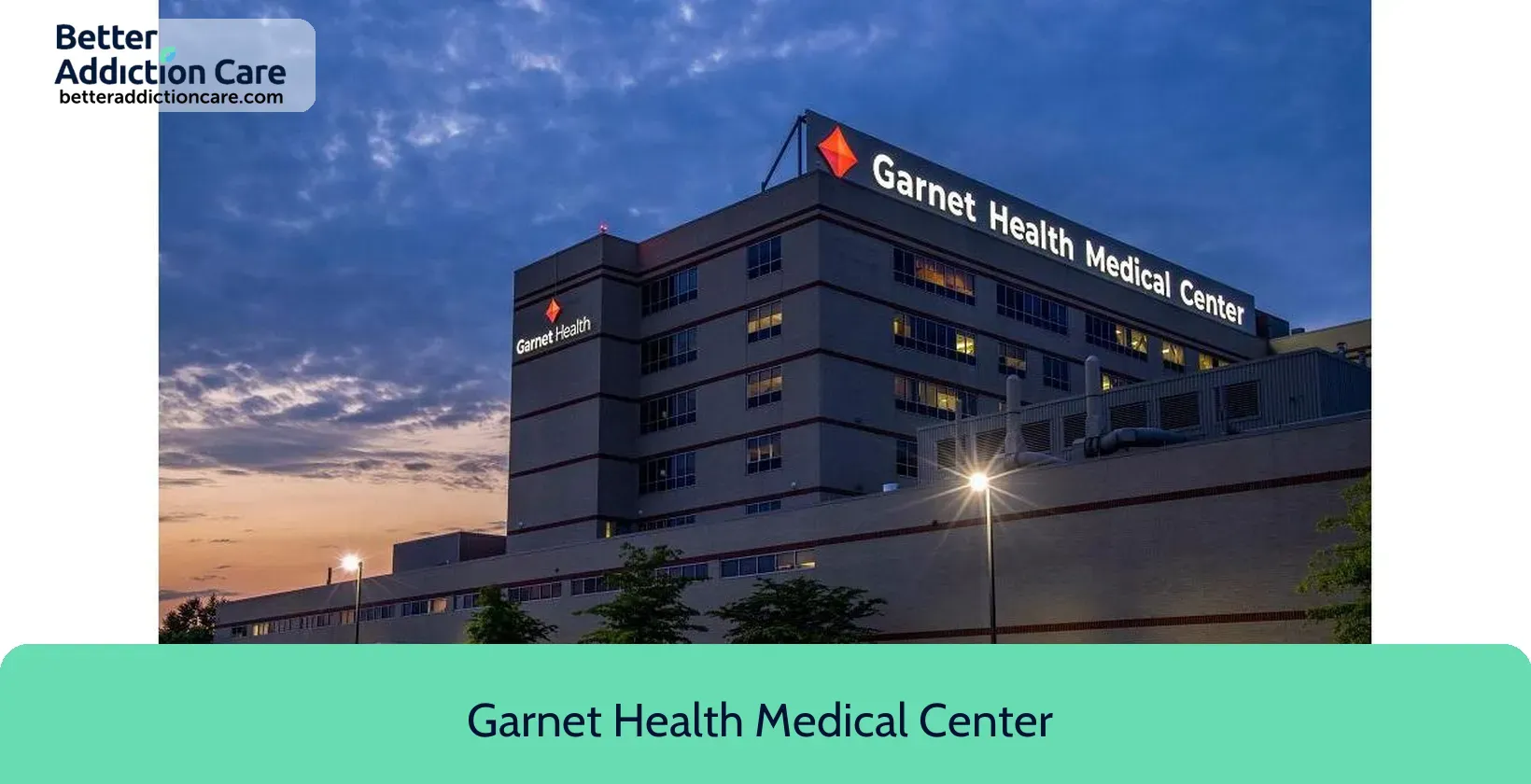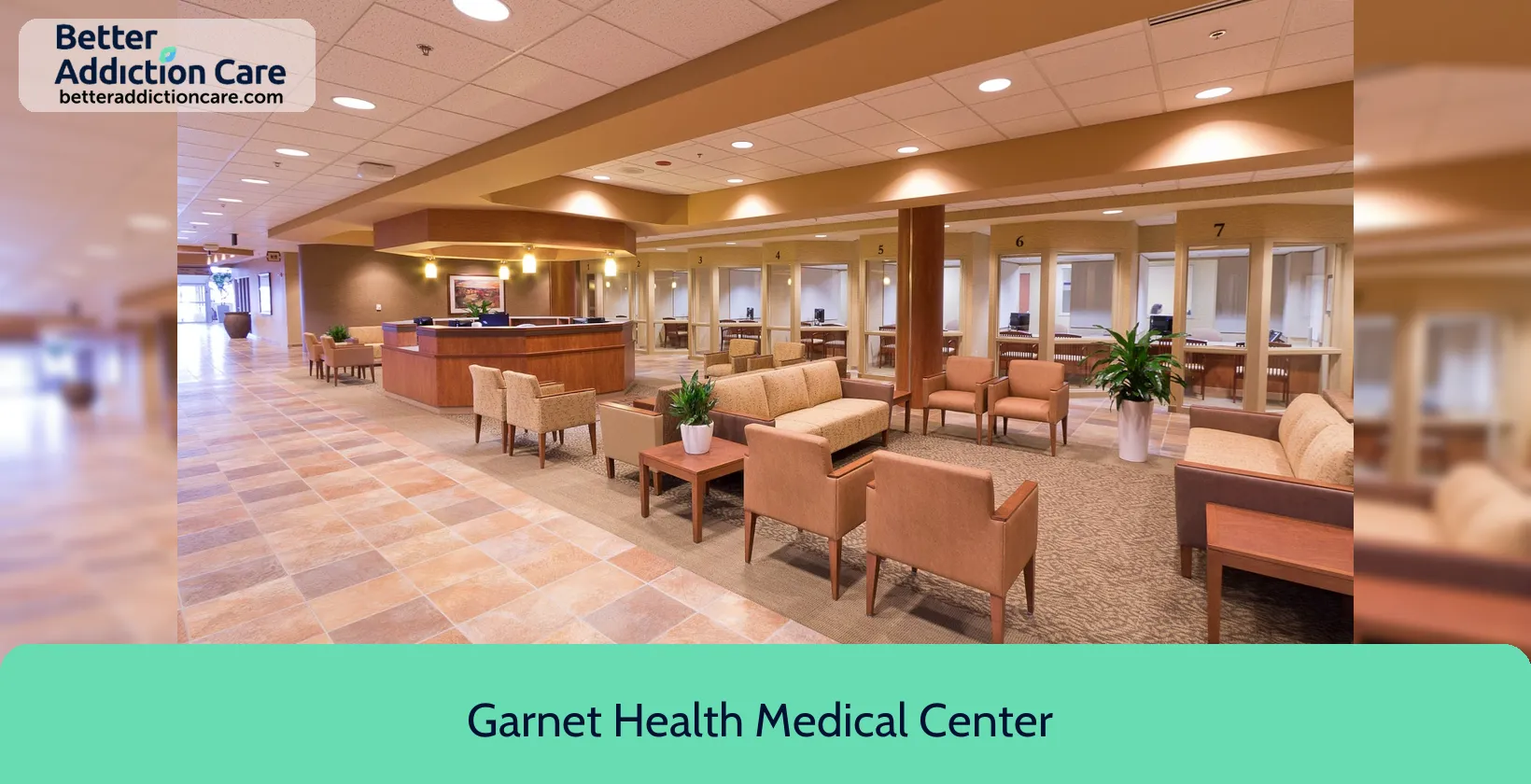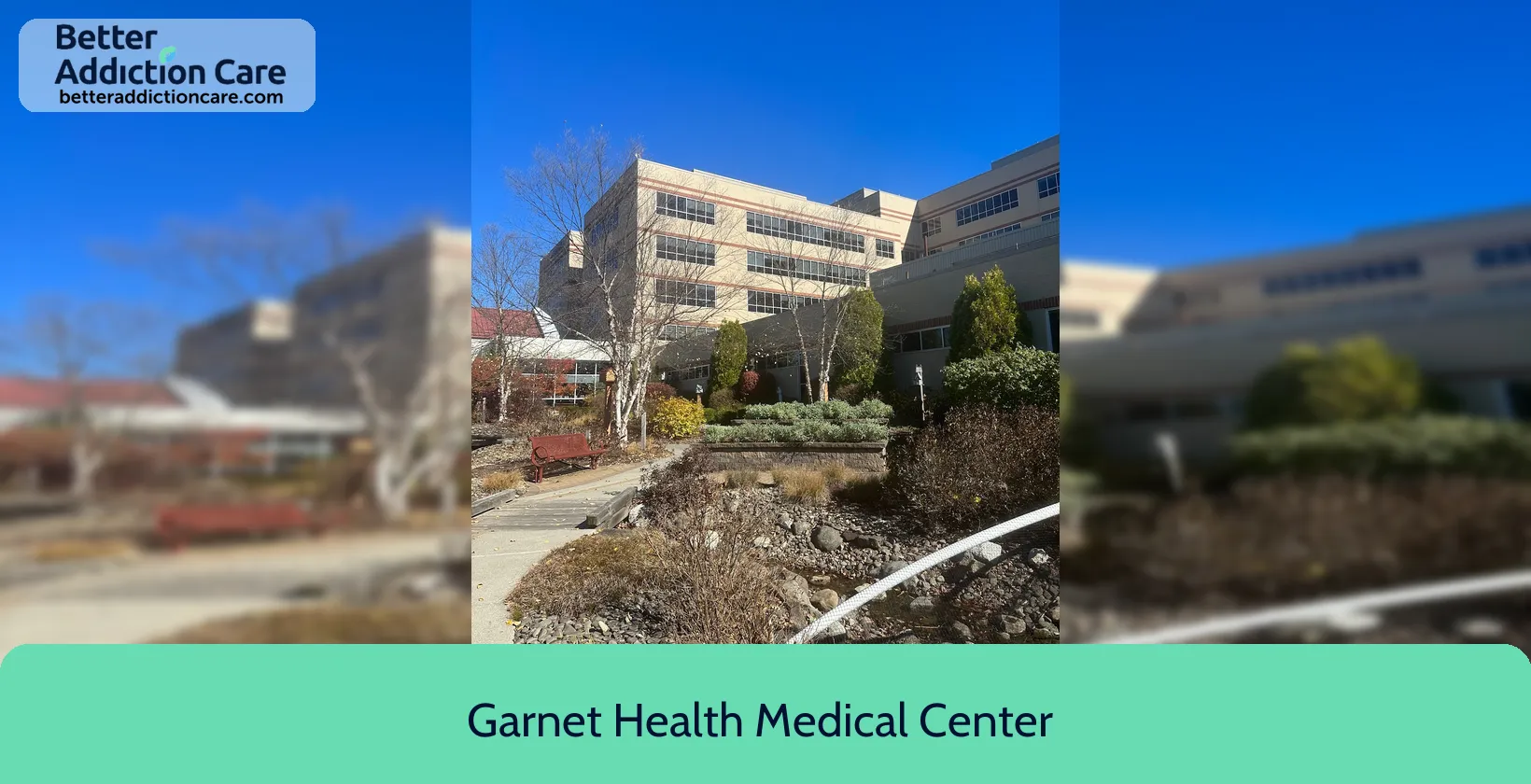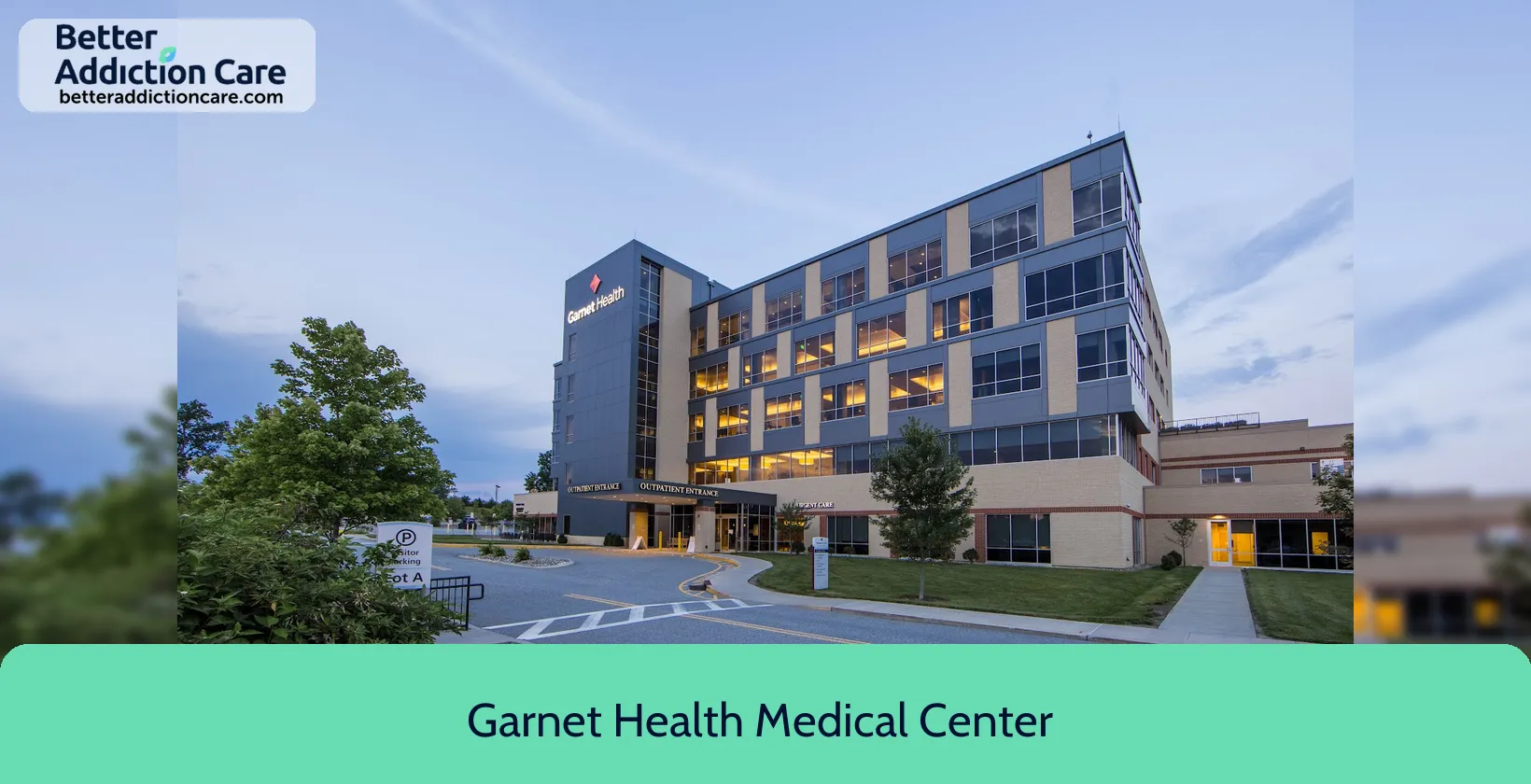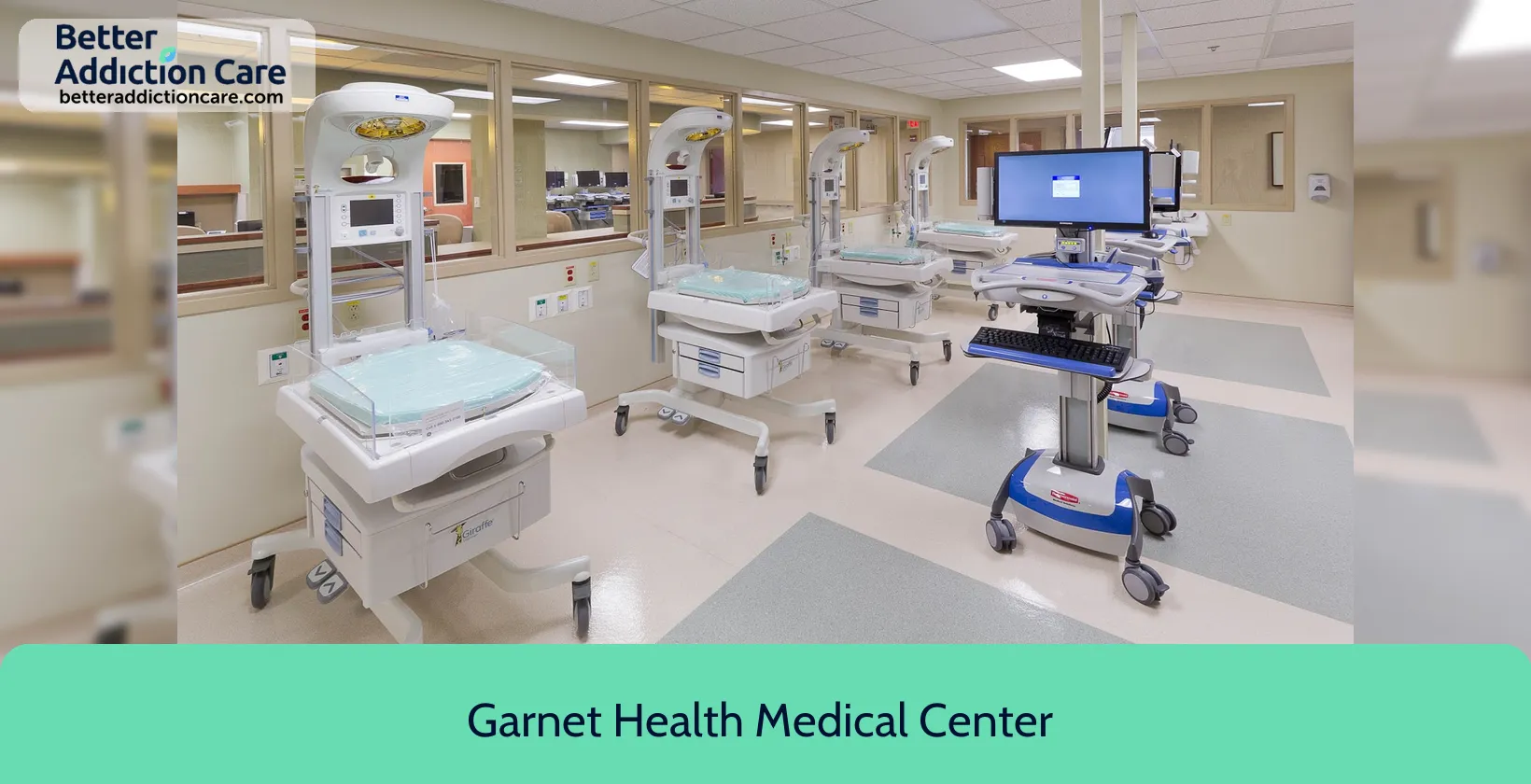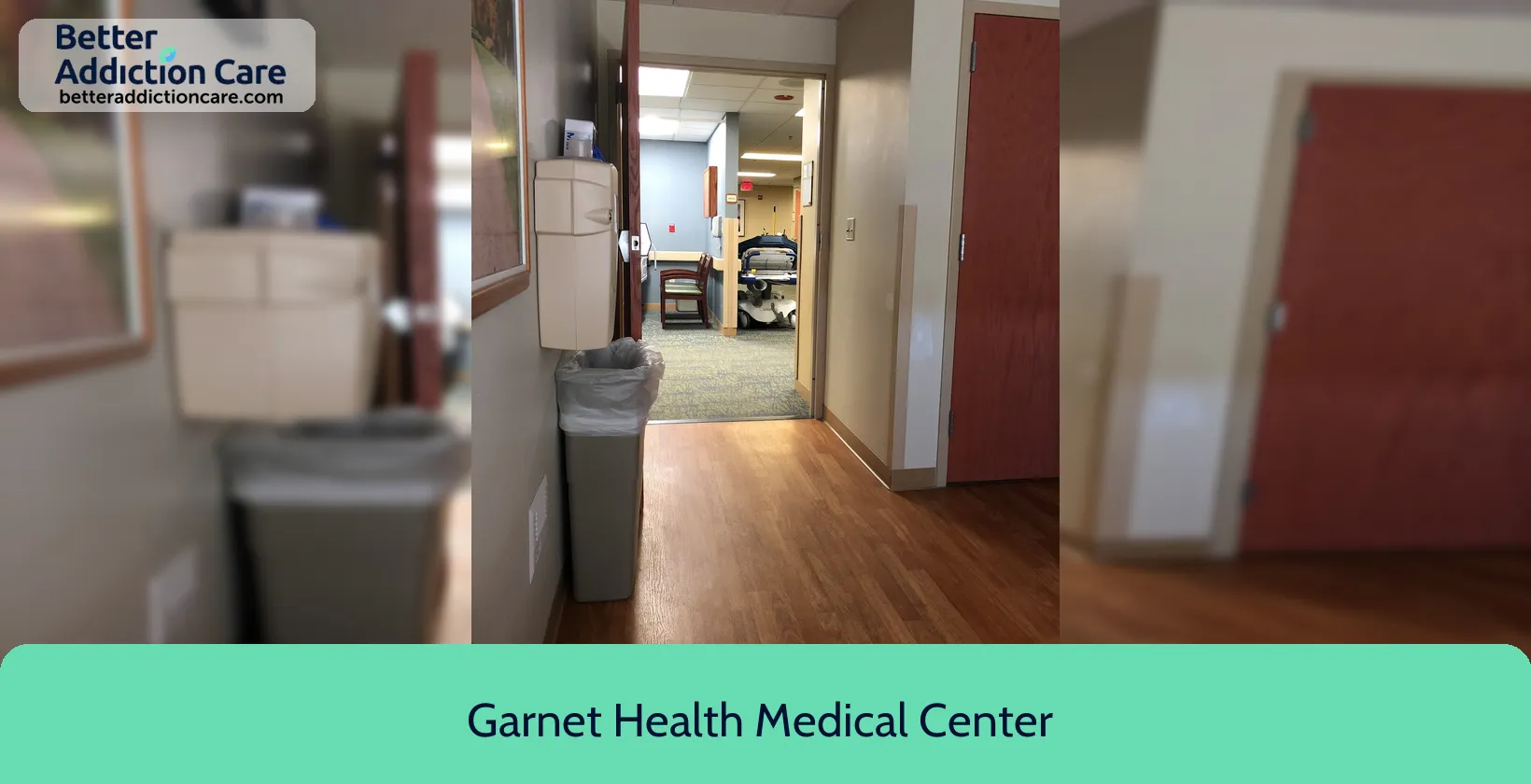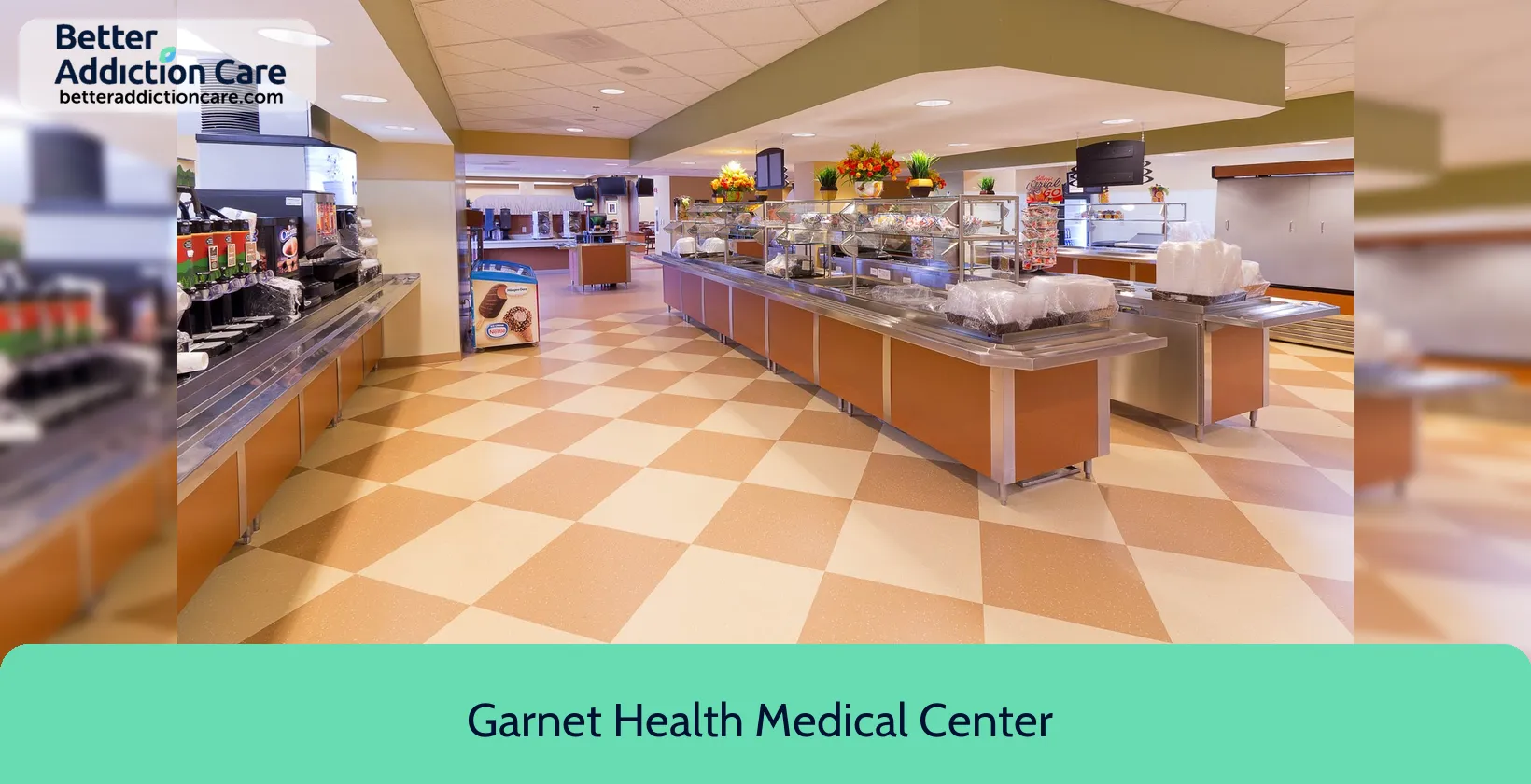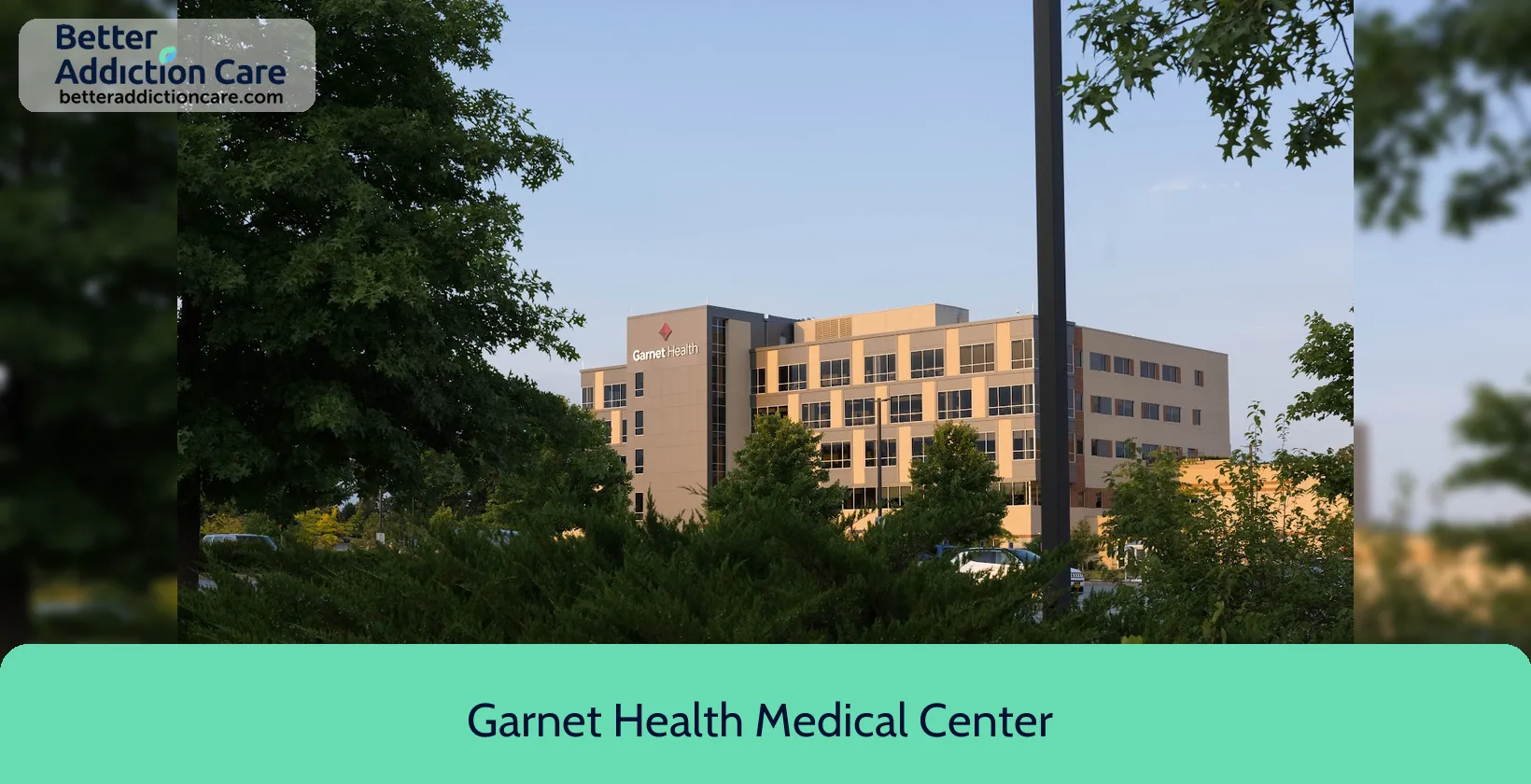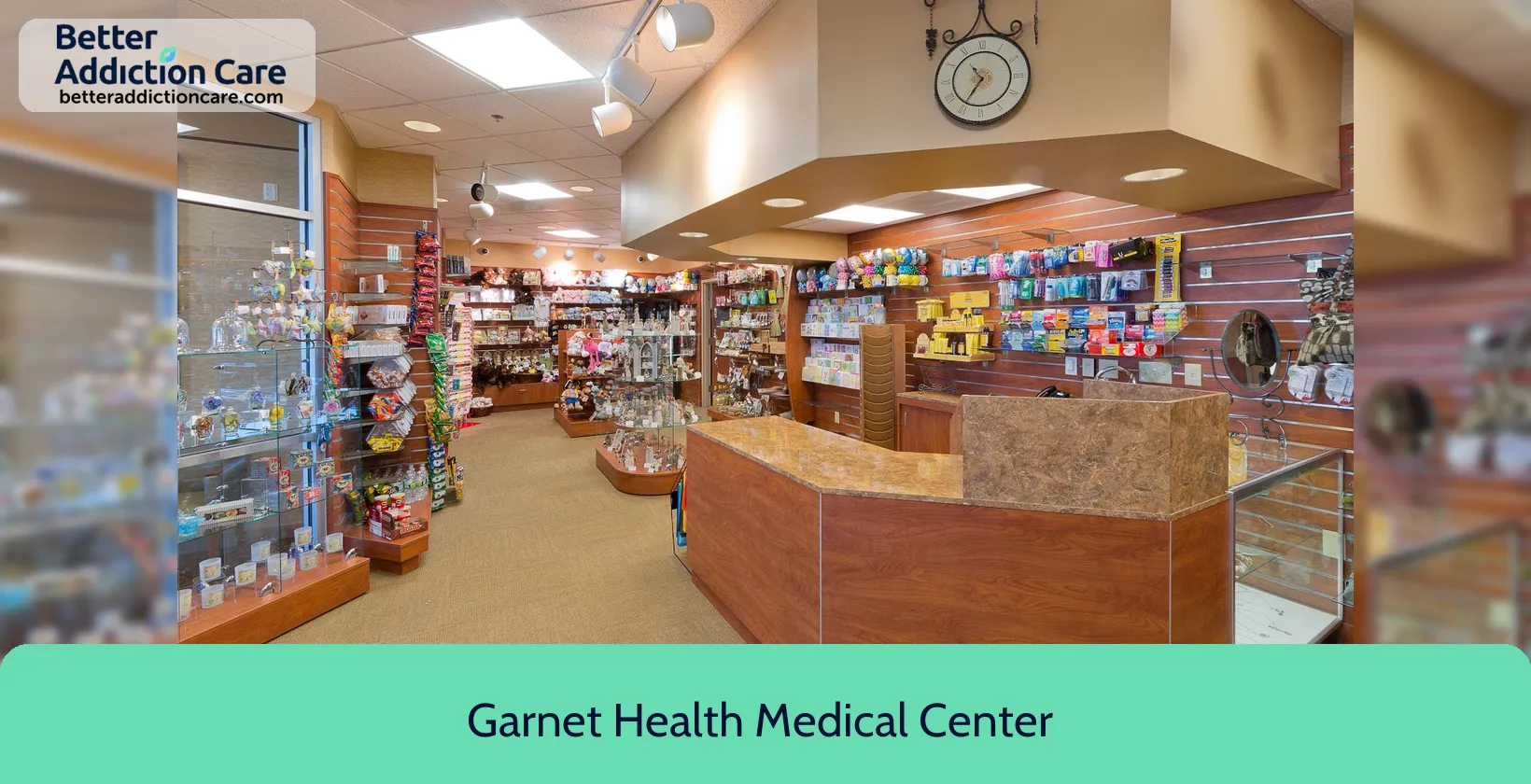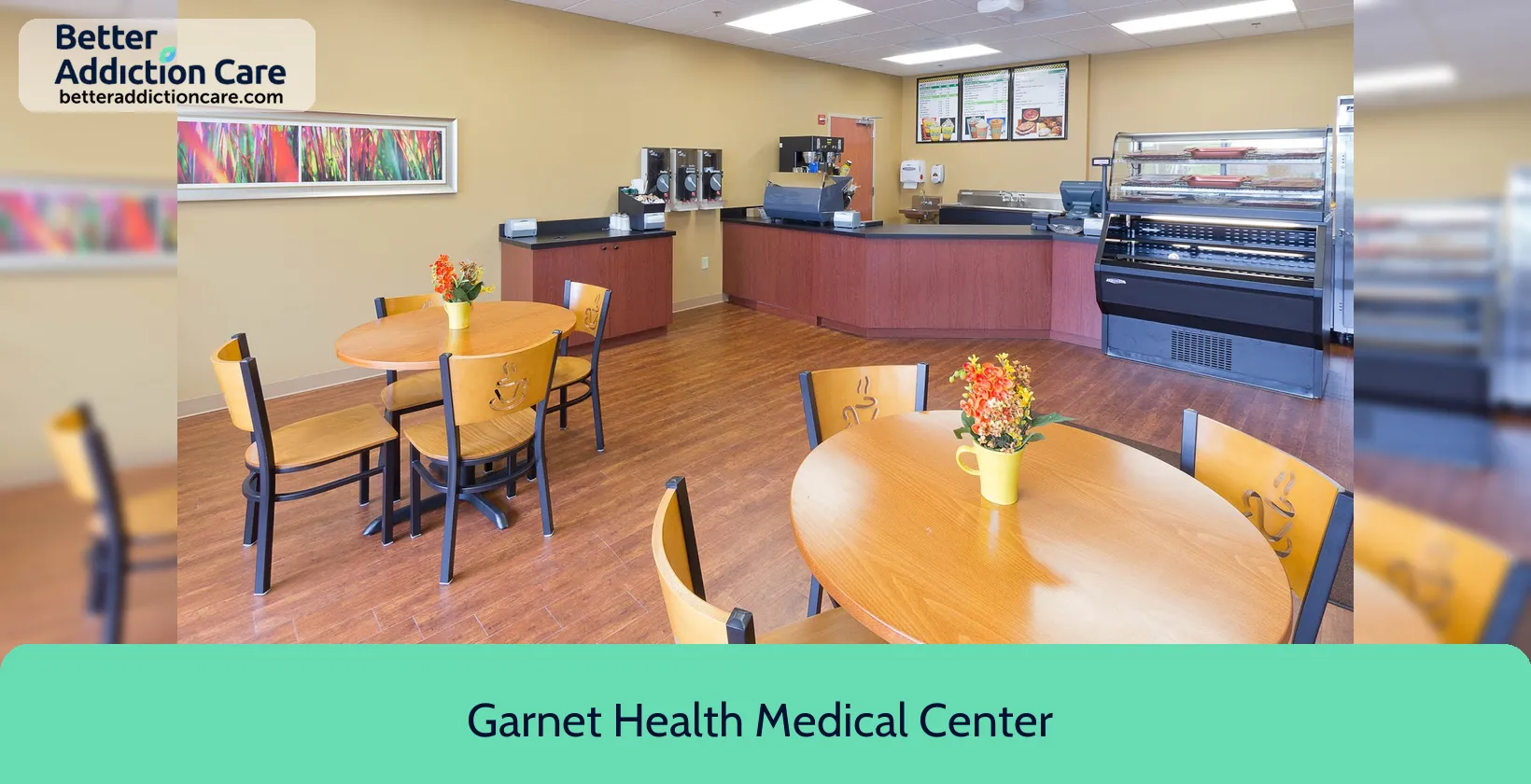Garnet Health Medical Center - Inpatient Psychiatric Unit
Overview
Garnet Health Medical Center - Inpatient Psychiatric Unit is a mental health treatment center for people seeking treatment near Orange County. As part of their treatment modalities for recovery, Garnet Health Medical Center - Inpatient Psychiatric Unit provides couples/family therapy, group counseling, and cognitive behavioral therapy during treatment. Garnet Health Medical Center - Inpatient Psychiatric Unit is located in Middletown, New York, accepting cash or self-payment for treatment.
Garnet Health Medical Center - Inpatient Psychiatric Unit at a Glance
Payment Options
- Cash or self-payment
- Medicaid
- Medicare
- State-financed health insurance plan other than Medicaid
- Private health insurance
Assessments
- Screening for tobacco use
- Comprehensive mental health assessment
- Comprehensive substance use assessment
Age Groups
- Young adults
- Adults
- Seniors
Ancillary Services
- Court-ordered outpatient treatment
- Family psychoeducation
- Suicide prevention services
Highlights About Garnet Health Medical Center - Inpatient Psychiatric Unit
6.82/10
With an overall rating of 6.82/10, this facility has following balanced range of services. Alcohol Rehabilitation: 8.00/10, Drug Rehab and Detox: 6.00/10, Insurance and Payments: 6.53/10, Treatment Options: 6.73/10.-
Alcohol Rehabilitation 8.00
-
Treatment Options 6.73
-
Insurance and Payments 6.53
-
Drug Rehab and Detox 6.00
Treatment At Garnet Health Medical Center - Inpatient Psychiatric Unit
Treatment Conditions
- Mental health treatment
- Substance use treatment
- Co-occurring Disorders
Care Levels
- Hospital inpatient/24-hour hospital inpatient
Treatment Modalities
- Couples/family therapy
- Group counseling
- Cognitive behavioral therapy
- Integrated Mental and Substance Use Disorder treatment
- Activity therapy
Ancillary Services
Languages
- Sign language services for the deaf and hard of hearing
Additional Services
- Pharmacotherapies administered during treatment
- Mentoring/peer support
- Metabolic syndrome monitoring
Special Programs
- Persons 18 and older with serious mental illness (SMI)
Contact Information
Read our Most Recent Article About Drug Addiction
DISCLAIMER: The facility name, logo and brand are the property and registered trademarks of Garnet Health Medical Center - Inpatient Psychiatric Unit, and are being used for identification and informational purposes only. Use of these names, logos and brands shall not imply endorsement. BetterAddictionCare.com is not affiliated with or sponsored by Garnet Health Medical Center - Inpatient Psychiatric Unit.
